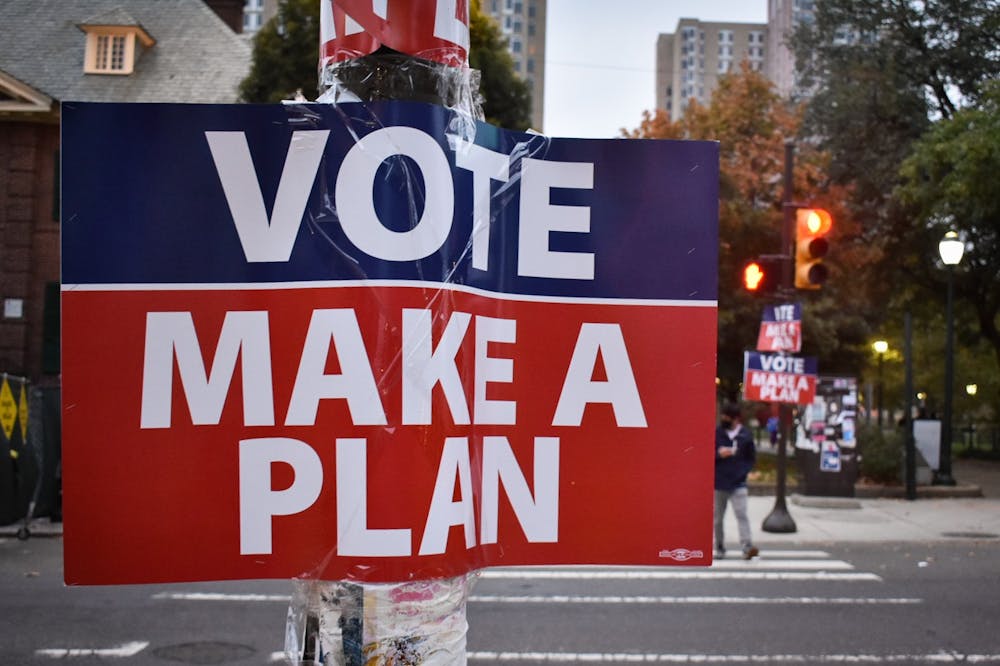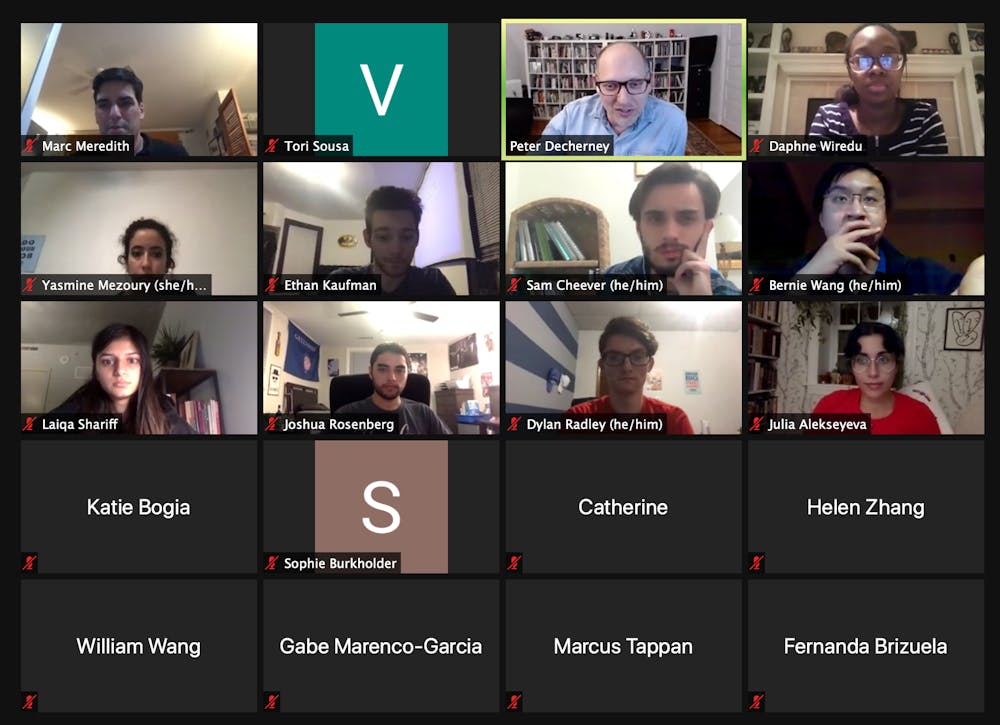
The virtual screening of "Boys State" was held to promote voter registration and the importance of civic engagement.
Credit: Samantha TurnerAs members of the Penn community anticipate a historic election, several political and film groups on campus co-hosted a virtual screening the documentary "Boys State" to promote voter registration and the importance of civic engagement.
The event, presented last Thursday evening by A24 Films at UPenn, SPEC Film, Penn Democrats, Penn Leads the Vote, and Penn College Republicans, allowed students to stream the Apple Original film and participate in a post-screening discussion moderated by two Penn professors.
"Boys State," a Sundance Film Festival award-winning A24 Documentary, depicts the week-long annual program in Texas where over a thousand 16-and-17-year-old boys gather for an elaborate mock exercise in which they “build” their own state government, including campaigning, policy drafting, and ultimately electing members for office. Although the film focuses on the boys' faux government, the film mirrors the intense party divisions and hyper-masculinity currently plaguing national politics.
President of College Republicans and College sophomore Harrison Selznick said he enjoyed the film’s message about the importance of civil discourse, enfranchisement, and freedom of thought – especially for America’s young people.
“This film sets a great example of how the youth are the pinnacle of the American vision, in which hundreds of people across many different backgrounds can come together as one,” Selznick said.
Despite the moments of tension between the two parties, the boys put aside partisanship for the betterment of their hypothetical “state” by the film's end. The two groups also seemed to gain respect for each other despite differing views.
Penn Dems Treasurer and College sophomore Dylan Radley went to Boys State in Florida in 2018. He managed to meet three current Penn students and former Boys State alumni at the event, and he thought it was impressive that the filmmakers could construct a narrative with 1,000 subjects.
"I think that the film was an interesting look at two very different ways of campaigning. On the one hand, there was a more scandal-focused, salacious style of campaigning. On the other, the other party tried a more unifying message," Radley said. "This kind of mirrors our current conditions, which we talked about, and it was interesting to see how current political figures loom so large over the program."

Political Science professor and election expert Marc Meredith and Cinema and Media Studies professor Peter Decherney moderated the post-screening debrief discussion. Along with around 15 students, four of whom attended the “Boys State” program in their home states, the professors discussed the film’s stylistic elements that brought to light to the different political positions and personalities of the teenagers that were chosen as the film’s subjects, and what this suggests about the structure of the American political system as a whole.
"By randomly dividing the boys into political parties that don’t have set platforms and by having them focus on campaigning without legislating, [viewers] get to see the style of politics without the actual substance," Decherney said.
Meredith added that the influence of Trump’s presidency was repeatedly highlighted by filmmakers, especially given the impressionable age of the film's subjects.
“You know, it wasn't just about Trump but his influence was certainly there,” Meredith said. “That makes sense, because this is the exact age that political science would say you're most influenced by your leaders, around 15 and 16. That's like your prime for forming your core political beliefs.”
College and Wharton senior Laiqa Shariff, who also serves as A24 Films’ intern at Penn, said she first had the opportunity to watch the film in August.
“More than a just film, 'Boys State' is a documentary, meaning it’s portraying real life, so these are characters that exist as real people, and they were able to have their disagreements but still come out of [the experience] respecting one another, and understand that this is something that’s important and relevant to the future,” Shariff said.
Shariff said that the film’s ability to help foster dialogues between those with different views, and to internalize this message of the need for bipartisanship, is especially important right now.
“In analyzing the ‘success’ of a film and its ability to move or convince people, I think that it’s important not just to watch the film from our rooms, but to think about what happens next," Shariff said. "Even if, after watching, people start talking about it with each other, whether that’s in the post-film discussion or even just with their friends or roommates, then that’s enough.”
The Daily Pennsylvanian is an independent, student-run newspaper. Please consider making a donation to support the coverage that shapes the University. Your generosity ensures a future of strong journalism at Penn.
Donate




